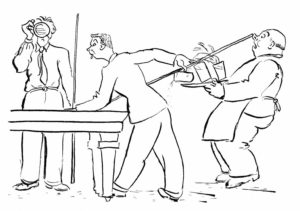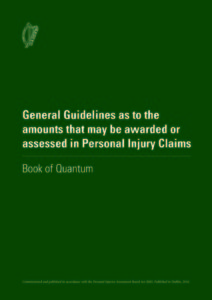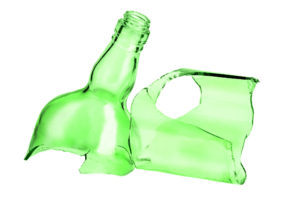Insuring a future
The Licensed Vintners Association makes no bones about it. The latest round of crippling insurance hikes for business now threatens the viability of some pubs’ in the capital.
Average insurance premia for Dublin pubs increased from €17,000 in 2014 to €25,000 this year, an increase of 47% according to the results of a recent survey conducted by the Licensed Vintners Association.
Publicans operating late night bars have experienced even higher increases with one member reporting that his insurance premium jumped from €80,000 to €145,000 over the same two-year period, an increase of 81%.
The figures were presented to the Oireachtas Finance Public Expenditure and Reform Committee recently by the LVA whose Chief Executive Donall O’Keeffe told it that in the absence of objective information on the majority of Public Liability settlements, the Government must commission an independent report as soon as possible into what’s driving these unsustainable premium increases.
Describing the lack of industry information and transparency on how claims are settled as “outrageous” he said that the main reason this information wasn’t available was because 70% to 75% of claims are settled directly between insurers and claimants.
The Committee’s Chairman John McGuinness TD, tended to agree, stating, “Having just last week published a report on the prohibitive cost of motor insurance the Joint Committee is now keen to turn to an area where insurance providers are squeezing business owners and operators. It’s incumbent on us all to support Irish businesses and addressing the spiralling costs of insurance is an important part of that.”
Donal O’Keeffe explained, “There’s absolutely no information available about the majority of public liability settlements. This is simply unacceptable in a modern economy and is a real deterrent for new entrants to the Irish insurance market.
“Figures from the Personal Injuries Assessment Board – which deals with 20% of public liability claims – show that there was a relatively modest 6% increase in such claims from 2013 to 2015 with the average award remaining relatively stable at €25,000. So these figures do not support the view that higher claims costs are causing the premium hikes. So what is? That’s why we need an objective report to provide absolute clarity on what is driving these costs.”
The LVA would like to see a National Claims Register created to capture all relevant information about Public Liability claims and for all claimants to be obliged to notify the business concerned with full details of their claim within 30 days of the incident occurring. At present claimants can lodge a claim up to two years after an incident has occurred.
“This is completely excessive as it makes it difficult for the business to prepare a defence as staff and/or customers’ witness statements cannot be obtained and CCTV footage will no longer be available,” he concluded.
And the Vintners Federation of Ireland has just conducted a membership survey to find 15% of its members reporting premium rises of 30-40% with two in five experiencing difficulties in securing cover.
It comes as no surprise then that many businesses want government to independently review the business insurance market and expand the remit of the Joint Committee on Finance, Public Expenditure and Reform into business insurance.
With Personal Injury premium costs for Dublin pubs running up to €100,00 per annum, some hospitality business have become unsustainable, reports the LVA.
It also concerns too about how the present system functions with claims being settled directly by the insurance company without notice.
It also believes that the two-year period in which it’s possible to lodge a claim is completely excessive while many claimants refuse to accept the PIAB’s offer and proceed through the courts.
Taking 2015 as an example, there were 33,561 applications made to the PIAB according to figures provided by Insurance Ireland. Of these 11,734 formal awards were made of which 6,716 were accepted or 20%, which means 80% moved to a different settlement channel while insurers accepted 95% of PIAB decisions.
LVA & VFI involvement
The LVA has been engaged in political lobbying on the issue and it’s “very hopeful” that the Joint Committee’s remit will be expanded to include public liability insurance soon, the LVA’s Donall O’Keefe told Drinks Industry Ireland.
The VFI too would also like to see the PIAB’s remit extended but it would also want to see other issues implemented like a significant strengthening of PIAB powers and a review of the Book of Quantum to bring it into line with the EU average.
Furthermore it would like to see a reduction of the time-frame in which claims can be brought to one year instead of two and enhanced penalties for those found to have brought a fraudulent claim.
The Federation met with the Minister of State at the Department of Finance Eoghan Murphy TD recently and received a “sympathetic” hearing from the Minister “in the sense that he understands the problems,” reported VFI Chief Executive Padraig Cribben, “His initial concentration is on motor insurance and he had a set of proposals drafted to the Minister for Finance with final proposals due for early December. After that, he hopes to broaden the scope of the Insurance Task Force and will talk with all interested parties including the Federation at that time – early in 2017. He understands the problems and issues facing small businesses with insurance but finding the right and workable solution is what’s exercising him at the moment.”
Insurance industry’s “lack of transparency” rejected
Many – including the LVA and the PIAB itself – have criticised the insurance industry for a lack of transparency, a criticism firmly rebutted by Insurance Ireland when contacted by Drinks Industry Ireland.
“Insurance Ireland is independently regulated by the Central Bank of Ireland and provides all information requested by the Central Bank to inform its regulation of the industry,” stated John Byrne, Communications Manager for Insurance Ireland, “Each year the Central Bank publishes its Insurance Statistics Report which, almost uniquely for an industry in Ireland, provides detailed breakdowns of each insurer’s position with figures for their total income, their total claims costs, their total management expenses, their total commission paid to individuals to sell their products, their total income from investments and the profit or loss from underwriting motor business, among many other details. Insurance Ireland also publishes its annual FactFile with detailed market breakdowns including on public liability.”
He went on to state that as part of Minister Eoghan Murphy’s work in the area of Motor Insurance, Insurance Ireland has provided never-before compiled industry data to inform policy responses to the issue of rising cost of claims. Insurance Ireland’s members provided all their claims details for recent years to inform the Book of Quantum “…thereby providing a comprehensive insight into the prevailing trends in the market”.
Despair greets new Book of Quantum
A number of trade organisations have sharply criticised the decision of the Injuries Board to publish this new Book of Quantum.
Describing the decision to increase personal injuries awards as “daft and nonsensical” RGDATA, representing the owners of 3,500 local grocery/convenience shops and supermarkets, said that the revised Book of Quantum was being greeted with despair by thousands of Irish businesses already under siege from excessive insurance costs and inflated claims.
Irish businesses and consumers cannot afford the current system for delivering compensation for personal injuries in Ireland and radical reform is needed, stated RGDATA.
Recent research undertaken among its members revealed that at least a third had faced a new personal injuries claim last year and that insurance costs for shops have rocketed in the last 12 months.
“The news that the Book of Quantum has been reviewed and that many categories of awards for minor injuries will be increased is an absolute disaster for the family-owned shops and supermarkets that RGDATA represents,” commented RGDATA’s Tara Buckley, “They’re already reeling from the deluge of claims from a system that’s fundamentally broken and needs radical reform.
“The publication of the revised Book of Quantum is the latest indication of just how flawed the current system has become,” she continued, “Irish businesses cannot afford the current costs of insurance and claims. RGDATA has members paying €1,000 – €3,000 per week to insure their shops.
“This is completely unsustainable and is putting jobs and award-winning businesses at risk. Already shops have closed due to high insurance costs. This is not the time for tinkering about the edges – we need radical reforms as a matter of urgency.”
However the PIAB’s Michael Kelly pointed out to Drinks Industry Ireland that the new Book of Quantum provides “a mixture of decreases and increases in comparison with the previous publication. It showed that while some levels of personal injuries awards had increased since 2004, others including soft tissue injuries, had seen decreases”.
He added, “It’s important to state that the Book does not recommend levels of damages but provides comprehensive and granular data to assist those making awards in the bodies which do that”.
Nevertheless, it’s a guide to prevailing rates in Ireland which many believe to be out of line with the rest of Europe. But it was not the function of the Book to look at the prevailing rates elsewhere, he explained.
Insurance Ireland has long called for international benchmarking of our personal injury awards and welcomes the reference to it in Minister of State Eoghan Murphy TD’s Emerging Recommendations on addressing the cost of claims.
RGDATA sent Minister Eoghan Murphy, who chairs the Government’s Task Force on Insurance, a letter ‘Tackling Unsustainable Insurance costs’.
“The challenges that shop owners face in dealing with these claims is exacerbated by the consistent unwillingness of the insurance companies to fight these cases,” it stated, “This creates huge difficulties, not just in the context of the increases in insurance premiums which typically follow, but also in the levels of excess for the claims which the retailers have to endure – typically the retailers are having to fund the first €5,000 – €10,000 of any settlement.”
The Retail Consultation Forum has just heard that he has noted RGDATA’s submission regarding shop insurance costs and is inviting further submissions from the retail sector seeking suggestions as to how the Government can tackle rising insurance costs.
“The Government needs to get real on this issue and recognise that the current system of awarding compensation for personal injuries claims is broken beyond repair,” concluded Tara Buckley.
‘Tackling Unsustainable Insurance costs’
RGDATA sent a letter to Minister Eoghan Murphy, Chairman of the government’s Task Force on Insurance, pointing out that its members firmly believe that compensation claims cases need to be taken out of the Courts process and determined by an alternative structure that can operate efficiently but without the excessive costs that invariably accompany the resolution of these cases.
It suggests giving the Injuries Board wider powers to address the liability and quantum for personal injury cases “and to do so without the high level of attendant costs which blight the current system”.
It suggests something along the lines of the Employment Appeals Tribunal that can make decisions on the substance of a case and adjudicate on the compensation involved without the need to incur prohibitive legal costs.
It also suggests the introduction of a Register of settlements and mandatory guidelines for awards, requesting that there be an obligation on the insurer to consult with the insured, to take account of the impact of a settlement on their business and a new Garda unit to deal with fraudulent claims.
RGDATA adds that a ‘disentitlement to costs’ should be implemented where a claim is found by a judge to be exaggerated and that a register of judicial awards on Personal Injury cases be kept as well as a mandatory award of costs against a losing PI litigant.
It also proposes reviewing the Book of Quantum and reducing award levels by 50% based on international precedents.
General damages should be capped and there should be an appeal from a decision of the Injuries Board only on a point of law, it suggests. No legal fees for claimants or defendants should be charged – similar to the Employment Appeals Tribunal.











